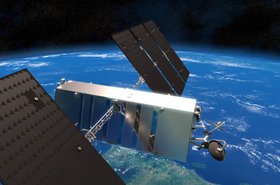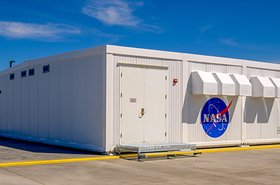SpaceX has seen its bid for more spectrum knocked back by the Federal Communications Commission (FCC) this week.
The FCC rejected SpaceX’s application to use the 1.6GHz and 2GHz radio spectrums due to a technicality, it said.
SpaceX's satellite division Starlink, had been seeking approval to use up to 7,500 second-generation satellites with spectrum in the 1.6 GHz, 2 GHz, and 2.4 GHz bands to provide mobile services.
In response, the FCC’s Space Bureau ruled that SpaceX’s application was “unacceptable for filing,” noting that it did not comply with existing regulations prohibiting the use of these bands for additional mobile satellite service (MSS) applications.
“The SpaceX requests do not substantially comply with Commission requirements established in rulemaking proceedings which determined that the 1.6/2.4 GHz and 2 GHz bands are not available for additional MSS applications,” said the FCC.
"Absent such a rulemaking to address any changed circumstances, we conclude that the 2 GHz bands are not available for licensing an additional MSS system. Therefore, the Modification Application's request to operate in these bands is not in substantial compliance with Commission requirements and is unacceptable for filing."
The FCC said that the application did not align with existing policies that have previously allocated the 1.6GHz and 2.4GHz spectrums to Globalstar and Iridium, leading to concerns around spectrum sharing and interference.
However, the FCC also issued a public notice to seek comment on SpaceX’s petitions to revise the spectrum-sharing rules for these bands.
The FCC said that SpaceX's petition has been substantial enough to require "a new rulemaking to determine whether there is additional availability for another CDMA MSS system in the 1.6/2.4 GHz bands, and if so, what operating criteria would be appropriate for that system."
One opponent in particular against the petition is Dish Network, which has clashed with SpaceX before regarding the use of the 2GHz band.
Dish currently uses the spectrum for its MSS, and has told the FCC that the band cannot handle another widely deployed service, and argues that the FCC's AWS-4 order says that only incumbent operators can deploy MSS operations in the band.
But SpaceX argues that Dish is not offering MSS services in these bands and claims Dish has no plans to offer MSS service.
The two companies have previously clashed over access to spectrum in the 12GHz band.
Last year, SpaceX successfully won its spectrum dispute with Dish after the FCC voted 4-0 to safeguard Starlink's access to the 12GHz spectrum.
Dish had been hoping to use the same radio band for a terrestrial 5G network.
SpaceX and Dish have been at loggerheads for some time over the spectrum dispute, with SpaceX concerned that plans from Dish to use 12GHz spectrum for a cellular network could interfere with its Starlink broadband services.
Starlink uses a spectrum in the 12GHz band to connect its satellites in non-geostationary orbit (NGSO) to user terminals. Dish Network also uses frequencies in the band, as it provides linear TV programming in the 12.2 to 12.7 GHz band.
The FCC noted that Dish failed in its effort to convince the Commission that its proposed 5G network could coexist with Starlink.







